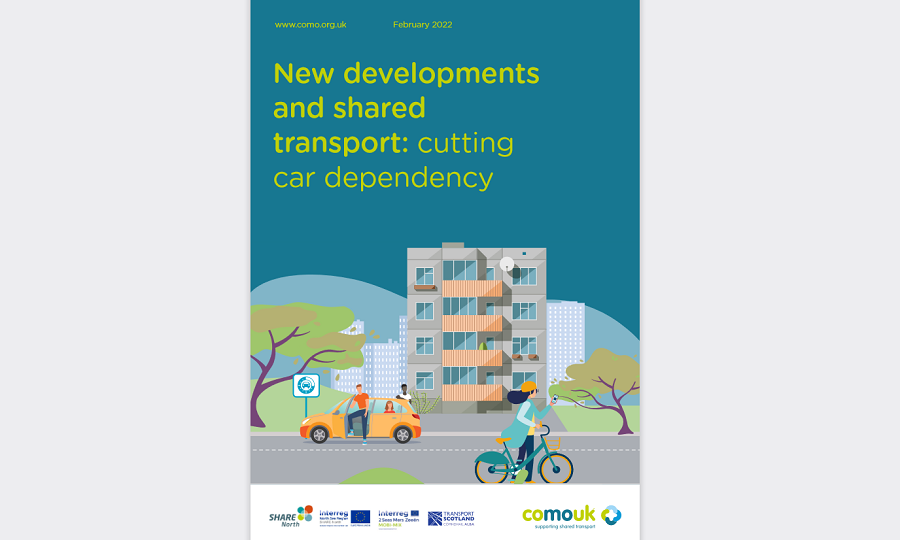Parking spaces in new housing developments should be limited to a maximum of one per property to increase the use of shared transport, according to a report from the country’s shared transport charity, Collaborative Mobility UK (CoMoUK).
The body is recommending limiting average car parking provision to “one private car per dwelling or less”.
It calls for planning policy to be redefined to centre on “people and place”, rather than cars, to encourage the use of shared services like car clubs and bike hire which reduce overall car use drastically.
In a new guide, CoMoUK says that hubs for active and shared modes of transport, as well as public transport, should be located closer to people’s front doors to make them more convenient.

It says limiting space for private cars and moving parking spaces off-site or to the edge of developments in so-called “parking barns” would cut car dependency and free up space for other purposes like play areas.
CoMoUK’s study on “new developments and shared transport” finds that where ratios of private car parking to dwellings were low, residents were much more likely to adopt other mobility options.
It says a “rule of thumb” identified through interviews with car club operators, which actively scope suitable sites based on the baseline provision of private car parking, was that one car per dwelling or less was required for car sharing to be feasible.
A recommendation in the report says: “Limit average car parking provision to one private car per dwelling or less.
“The lower the ratios the greater the chance of breaking dependency on the private car and supporting the switch to sustainable modes.”
The charity says the current National Planning Policy Framework for England makes it difficult for councils to refuse applications that don’t go far enough on shared transport proposals.
CoMoUK said planning policy should be revised to ensure it centres on shared transport and delivers access to key amenities such as shops and healthcare via sustainable transport modes or in walking distance.
It says this approach should be formalised through supplementary planning guidance. CoMoUK is also calling on planners, landowners and developers to engage with shared transport operators early in the process, and to build in meaningful developer contributions to shared transport solutions across the area.
Richard Dilks, Chief Executive of CoMoUK, said: “The UK Government’s commitments to reduce emissions shows the need to move to decarbonising options like shared transport.
“This behavioural change can be achieved through spatial planning design which encourages a shift away from low occupancy private car use.
“New developments are continuing to be designed and built that do not properly consider the important role shared transport can play in delivering sustainability.
“Our study shows that making shared transport and active travel more convenient than car use will reduce people’s dependency on private vehicles.”




















